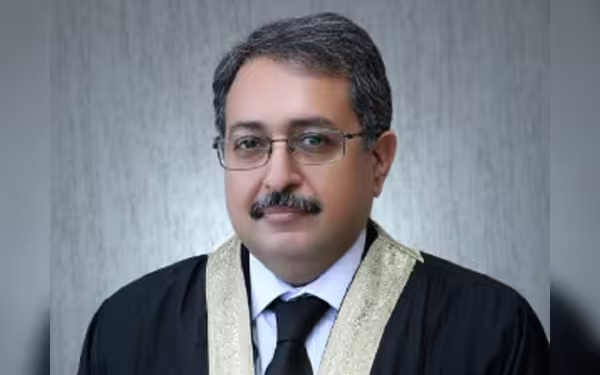Sunday, July 7, 2024 12:21 PM
Justice Tahir Limits Chief Justice's Authority in Bench Composition
- Chief Justice's authority restricted once arguments heard and judgment reserved
- Importance of upholding fairness and impartiality in judiciary emphasized
- Ruling by Justice Tahir safeguards integrity of judiciary and rights of parties
 Image Credits: tribune.com.pk
Image Credits: tribune.com.pkJustice Tahir's recent judgment limits the Chief Justice's authority in altering bench composition post-argument stage, emphasizing fairness and judicial independence.
In a recent judgment delivered by Justice Muhammad Arbab Tahir, it has been clarified that once a case has reached the stage where arguments have been heard, and the judgment has been reserved, the Chief Justice's authority to transfer the case to another bench or dissolve/reconstitute the existing bench is restricted. This ruling aims to ensure the integrity and independence of the judicial process.
Justice Tahir emphasized that while the Chief Justice can provide his own opinion on a case, he cannot unilaterally alter the composition of the bench to influence the final judgment. This decision underscores the importance of upholding the principles of fairness and impartiality in the judiciary.
The judiciary plays a crucial role in upholding the rule of law and ensuring justice for all. The composition of benches hearing cases is carefully considered to maintain transparency and prevent any undue influence on the judicial process. The recent ruling by Justice Tahir serves as a reminder of the importance of respecting the established procedures and protocols within the legal system.
Justice Arbab Tahir's judgment reaffirms the principles of judicial independence and impartiality. By limiting the Chief Justice's authority to reconstitute benches after the conclusion of arguments, the decision aims to safeguard the integrity of the judiciary and uphold the rights of all parties involved in legal proceedings. This ruling sets a precedent for ensuring a fair and transparent legal system that operates in accordance with established norms and principles.













